Focke Wulf Ta-154 Moskito
The Ta-154 Moskito was a two-seat night fighter that flew for the first time on 1 July 1943. It was designed primarily as a night fighter to stem the tide of Allied bombers attacking Germany at night. The Ta-154, like the de Havilland Mosquito, was primarily of wooden construction. It would be capable of intercepting Mosquito night raiders and other heavy bombers and destroy them after being vectored onto the target using its radar.
Armament comprised two 20 mm and two 30 mm cannons. Max speed, courtesy of the Jumo 213A's (rated at 1776 hp) fitted to later variants, was 650 km/h. It could climb to
8000 m in 14 minutes 30 seconds. The Ta-154 was faster than the de Havilland Mosquito night fighter variants. The latter had a max speed of only 595 km/h.
The Ta-154 was of wooden construction and therefore easy to construct by skilled woodworkers. Tego-Film adhesive was used as bonding agent in the construction of the Ta-154. When the factory that produced the adhesive was destroyed in a bombing raid on Wuppertal, a cold glue adhesive was used as a substitute bonding agent. This had disastrous results as the glue ate into the wooden structure causing the wings to come off in flight. A few Ta-154 A-1's saw service with 1/NJG. 3 from Stade during January 1945. Plans were afoot to use the Ta-154 as a Mistel and even as a Pulk-Zerstorer against bomber formations. The latter mission would entail a Ta-154 packed with explosives being detonated within a bomber stream after the pilot had ejected using a downward-firing ejection seat!
My model is Revell's 1/48 scale rendition of the Ta-154 V15 fitted with Hirschgeweih antennae in the nose for its FuG 220 radar (See black & white photos) The model is dressed up in standard night fighter colours courtesy of Modelmaster's RLM range. Weathering was done with brown water colour paint for the panel lines and Doc O' Brien's weathering pigments.
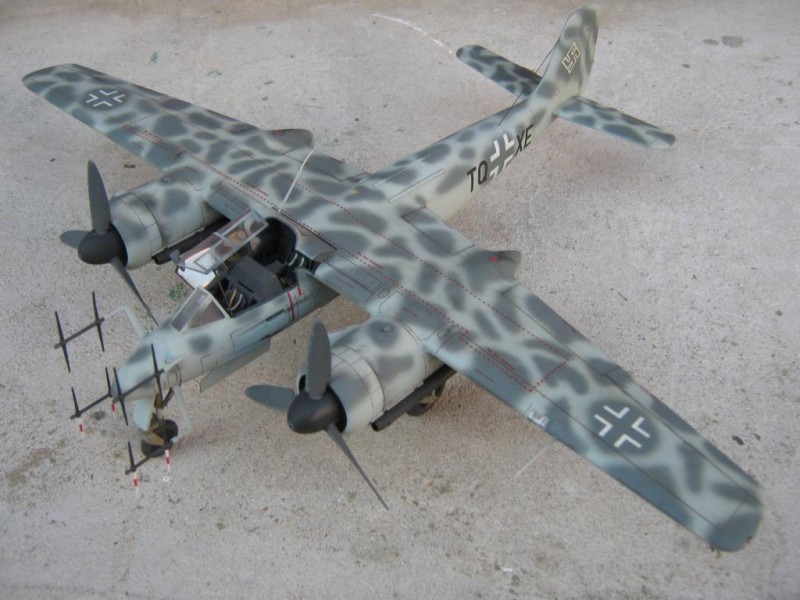
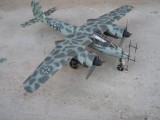
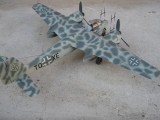
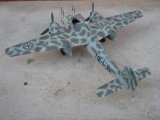
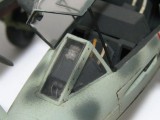
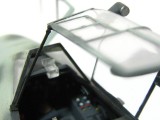
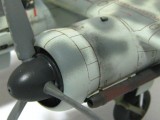
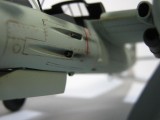
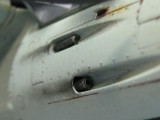
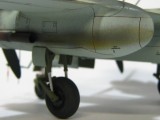
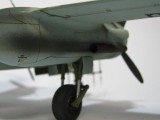
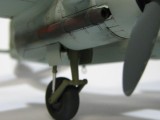
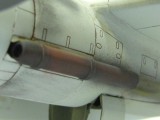
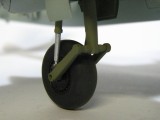
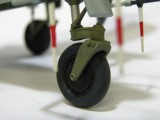
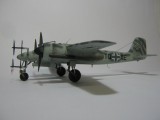
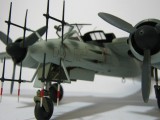
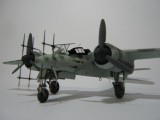
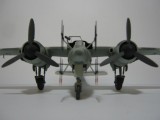
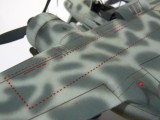
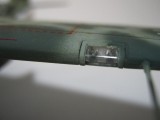
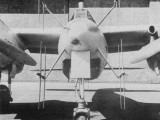
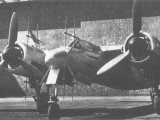
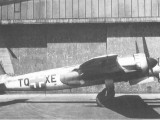
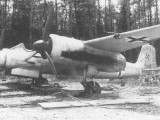
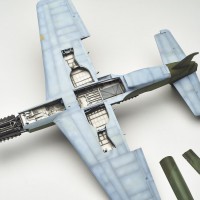
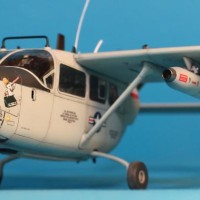
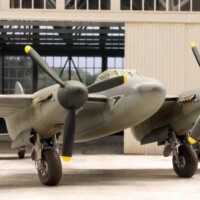
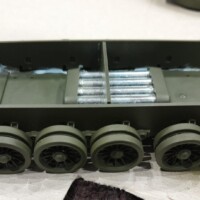
Nicely done...the detail and weathering look really good. Nice paint job, too.
Thanks Craig. I appreciate your positive comments!
Cracking paint job there! Do you do that completely freehand? I'm more of a fan of modern aviation but when I see an old aircraft replicated with such attention to detail it does catch my interest! Lovely build all round there Morne.
Thanks for the thumbs up Richard! I airbrushed the Ta-154 freehand with a double action Aztek airbrush. I had a look at your builds. They are absolutely marvellous!
Thanks very much! They are a learning curve at the minute though, I'm not quite at the level I want to be! Cheers though, thanks.
Great free hand camo Morne, and nice restrained weathering too.
Another fine build Morne.
Thanks Simon! Had to restrain myself or she would have been weathered to death. As prototype machines they were fairly clean except for engine exhaust staining on the nacelles.
Great looking build, Morne.
Thanks Joe. One of Revell's easy to put together kits that don't require too much elbow grease
Looking at the close-ups of the model, a couple things spring to mind that you might want to try with your next project.
The overspray of the RLM74 color shows that you're applying the paint a bit thick, and at too high a pressure (you should have a pressure regulator on your airbrush if you don't, it changes everything painting quality-wise). I usually thin the paint 50-50, and shoot at around 15psi (that's English measurement, I don't know what the metric measurement is but do its equivalent)/ Tighten the tip down to where you're doing a line about the thickness of a (not sharp) pencil line. Build the blotch from the inside out and there will be very little overspray. You can also successfully draw camo patterns with the paint this way.
Your models are really nice. Airbrushing is an artform one constantly works on. HTH
Thanks for the words of wisdom. I built the Ta-154 many moons ago when I still used an old diaphram compressor. With the regulator as you correctly stated one can actually write with the airbrush. Tom I need help in tracing photos of Navy aircraft of the Korean War that were covered in graffiti because they landed on the wrong carriers. Do you know of sites on the web I could try. I only managed to get 4 photos.
Way Cool Morne. One of my favorites. I remember reading several articles about the search for wood bonding agents.
Love the paint job.
California Steve
Thanks Steve. She is a sleek looking bird indeed.
As usual your attention to detail & weathering make this aircraft stand out.
Well done Morne.
I appreciate your positive comments Al.
I just love those old TV aerials on the front! Just joking, Morne, like the others said, your attention to detail and weathering especially make your models very special.
Thanks George. Those Stagantlers do lend a purposeful look to the Moskito.
Guten Morgen Morne, this one improved my breakfast by 100% ! The quality of your phtography create the image to made a real walkaround.
The camo is spot(!) on. I am using a Badger 150 airgun and an archaic Revell compressor. To reduce the surplus spray around the spots, i resprayed the surface with the other color again, last a little bit longer, but works for me.
It must be a delight to see your display cabinet
Vielen dank mein freund! She is showing her age. I built her 8 years ago. Used an old compressor without the ability to control the air pressure. The right equipment makes the difference between an average finish and an excellent one.
Morane,
Absolutely stunning and every other adjective I can come up with. I like everything about what you have done here. Don't you just hate it when the wings fall off.
Thanks Frank for the thumbs up on my build.
Well done Morne, I really like your paint job.
Thanks for the positive comment!
Amazing. Inspiration at what can be done with the Revell kit. I was saving this one but just may take off the cellophane, open her up and see what I can do. Thanks.
Thanks Jim. I appreciate the comment. Dragon also released this kit as a Mistel variant and include the full cockpit as well as an option for a Mistel aircraft. Revell did a good job, however aftermarket goodies is needed if you want to spice up the cockpit.